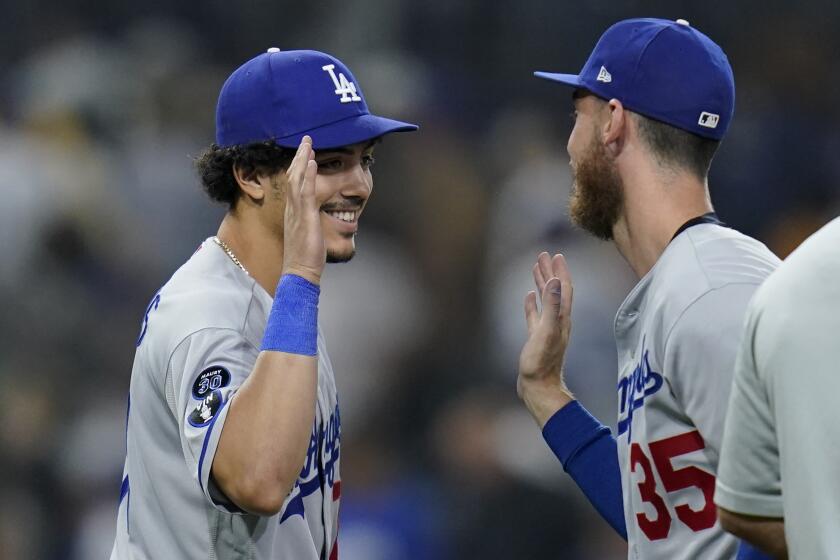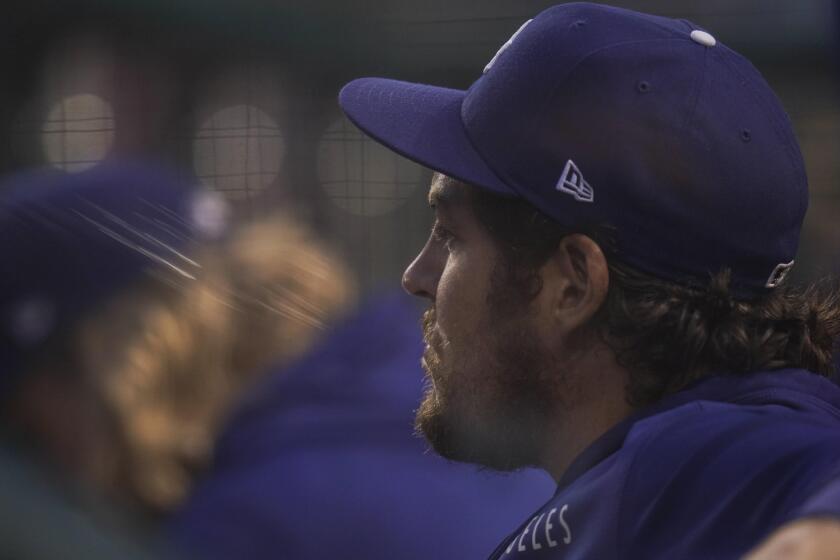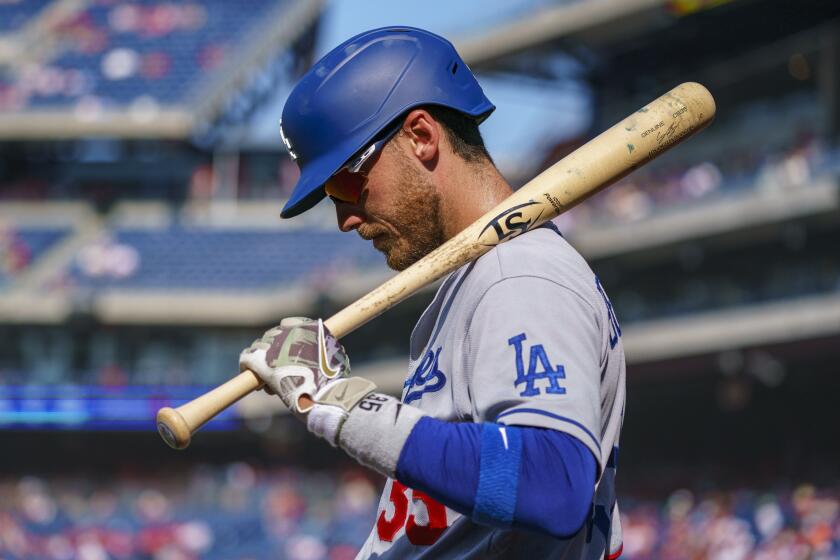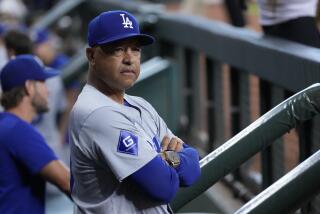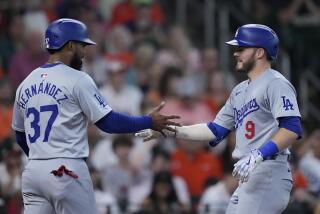Andrew Friedman explains Dodgers’ decision to stay quiet at winter meetings
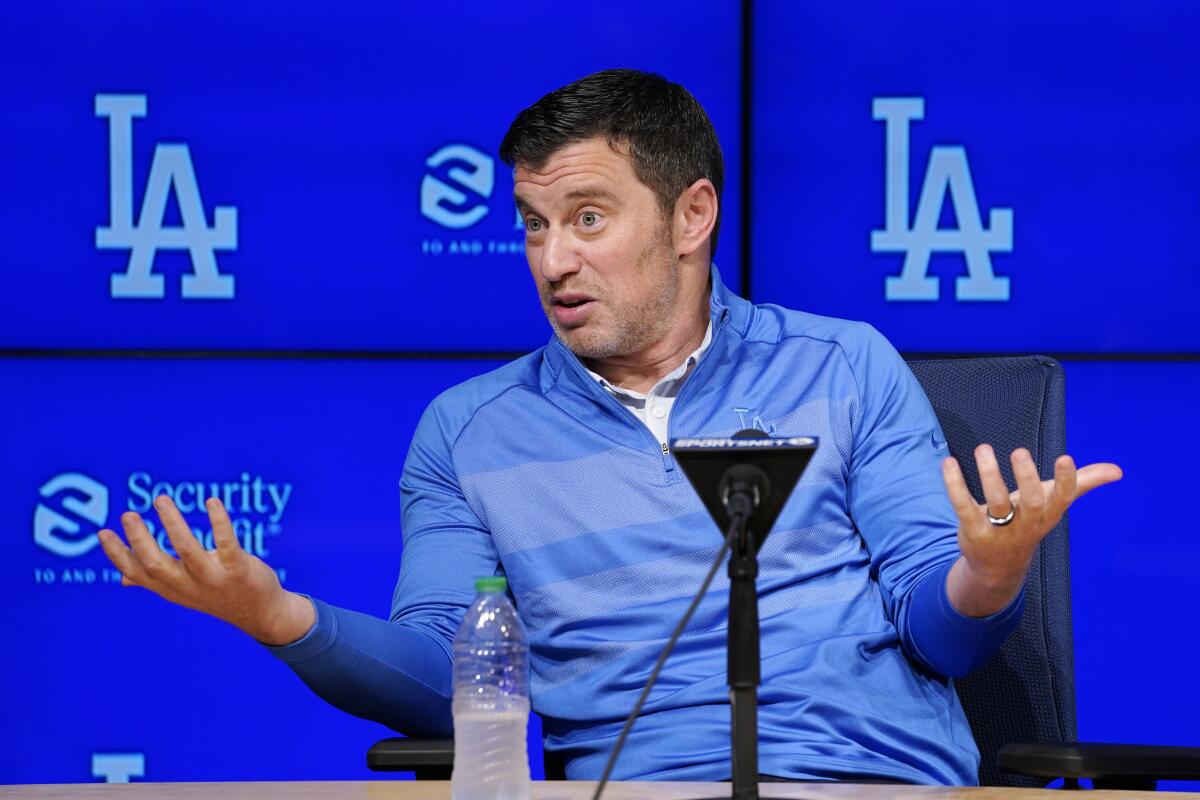
SAN DIEGO — Since taking over the Dodgers’ front office nearly a decade ago, Andrew Friedman has tried to strike a careful balance while constructing the club’s roster:
Maximize the team’s chances of winning the World Series in each new season, while also maintaining its ability to remain a contender in the years to come.
Call it the doctrine of sustained success; the belief that championship windows don’t have to swing from completely open to all the way closed, but can rather be pried open permanently through shrewd top-to-bottom organizational execution.
Which Dodgers prospect has a chance to play a significant role with the 2023 team? Here’s a closer look at the strengths and weaknesses of their top five minor leaguers.
“We’ve seen a lot of large-market teams compete over a short period of time, and then fall off a cliff,” Friedman said during this week’s annual winter meetings in San Diego, where his calculated philosophies were under the microscope again.
While many teams indulged in a nearly unprecedented spending spree, the Dodgers stuck to their principles and kept a tight grip on their purse strings.
They engaged in negotiations with several big-name players but didn’t splurge in an inflated market that has already seen more than $2 billion of guaranteed money dolled out.
It’s not that the Dodgers couldn’t use another splashy signing, with an experienced starting pitcher, a defensively capable center fielder and a potential new shortstop all on their offseason wish list.
It’s not as if they lacked the financial capital for a blockbuster move, with their current luxury tax payroll at around $189 million — almost $100 million less than last season and still well below the league’s $233 million luxury tax threshold.
Instead, the Dodgers evaluated the market, talked to agents and deemed the going rate for many players surpassed what they felt was a responsible, manageable, sustainable amount.
Trevor Bauer remains under contract with the Dodgers through 2023, and that could affect the players they can sign during the free-agency period.
They came close to signing Justin Verlander, and insist they won’t hesitate to swing a big deal later this winter, for either a free agent or trade target, if the right opportunity emerges.
But in a winter of rollicking — and what some might argue reckless — spending, the Dodgers are hoping their restraint will ultimately help them conquer the sport again.
“The one thing that’s been constant,” Friedman said of the team’s approach, “is putting ourselves in the best position to win a championship while also keeping that window open for as far as we can see out.”
Such messaging harkens back to Friedman’s early years running one of baseball’s most storied teams, when he was tasked with revamping a club saddled with a bloated payroll and sputtering farm system.
As the team’s payroll decreased every season from 2015 to 2018, its ability to instead develop prospects and nurture big league talent helped cement the foundation of a new-look contender.
The Dodgers didn’t always sign top-of-the-line free agents. But it hardly halted their transformation into one of the sport’s most consistent regular-season winners.
Cody Bellinger agreed to terms on a one-year contract with the Chicago Cubs on Tuesday, ending his career with the Dodgers and leaving a hole for the team to fill.
The postseason was a different story, with the Dodgers’ annual shortcomings in the fall increasingly blamed on their unambitious moves the previous winter.
That finally changed in 2020, when Mookie Betts’ arrival preceded a long-sought World Series championship — and became the first in a string of high-profile roster moves.
In 2021, they signed Trevor Bauer, then traded for Trea Turner and Max Scherzer at that season’s trade deadline. Last spring, they shocked the league again by luring Freddie Freeman after his departure from the Atlanta Braves.
In hindsight this week, Friedman argued those moves — which helped escalate the club’s payroll past the league’s luxury tax threshold and, at more than $280 million this past season, to club-record heights — were essentially the Dodgers’ effort at going all-in.
They tried jarring the window open a little bit more, hoping it wouldn’t suddenly slam shut.
The only problem: The Dodgers failed to bring another title, or even National League pennant, to Los Angeles.
Entering this offseason, all of it left them at an awkward crossroads: keep spending really, really big … or try to recalibrate back at more sustainable levels.
To this point, the Dodgers are opting for the latter. They’ve shed payroll and positioned themselves to reset their luxury tax penalties. They’ve held onto a new wave of prospects now knocking on the door of the big league roster.
It’s not a strategy that comes without risk.
Though their 2023 team is probably already playoff-caliber — at the start of the offseason, Fangraphs’ ZiPS projection still predicted the Dodgers to be a 91-win, first-place team — the league’s other title contenders have made more high-profile improvements during this week’s flurry of free-agent activity.
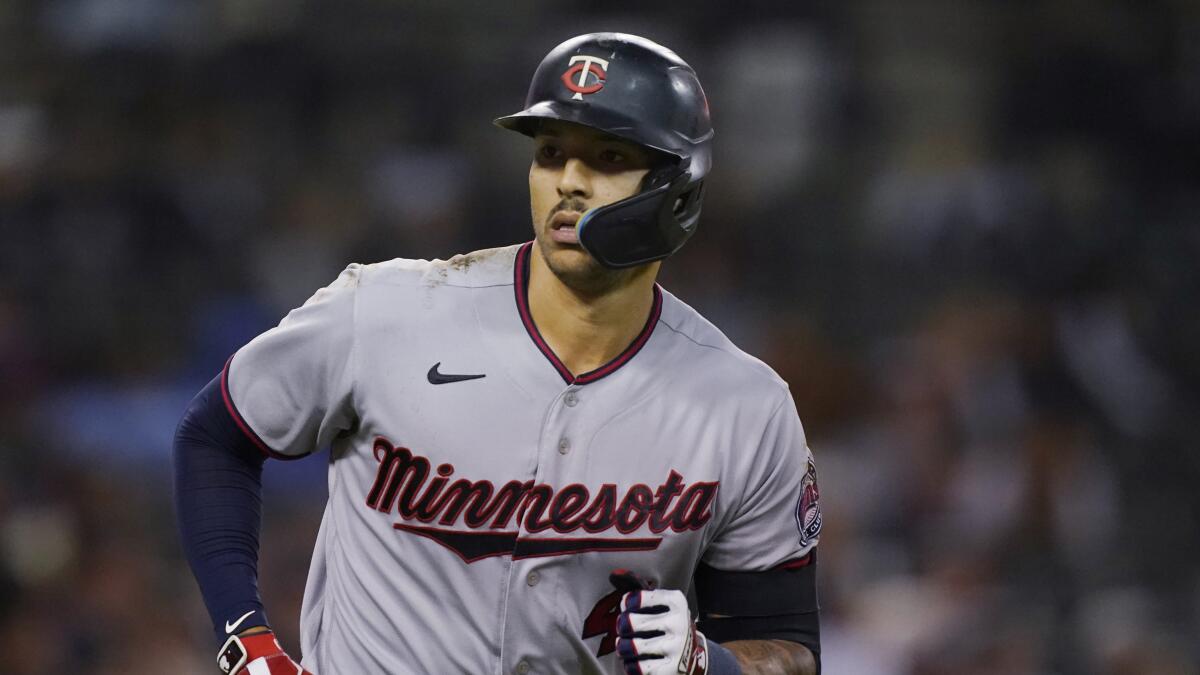
The team will certainly bolster the roster before opening day, but probably not with superstar additions — barring a change of heart toward shortstop Carlos Correa, whom they’re intrigued by but not expected to pursue given his involvement in the Houston Astros’ 2017 sign-stealing scandal; or a sudden collapse in a pitching market now headlined by Carlos Rodón and Kodai Senga, who have also received interest from the Dodgers but will probably earn offers beyond the team’s preferred price range.
Friedman defended the Dodgers’ approach this week, pushing back against the notion that the team could benefit from another all-in approach.
“This is just not the sport where that reward is the same as in other sports,” he said. “The sustained success part comes — and we’ve seen over the last seven, eight years — [by] interjecting young, talented players into the mix.”
Given their conservative approach this week, the Dodgers clearly believe they don’t have to keep spending at levels even their deep-pocketed ownership group might be unwilling to stomach.
More to Read
Are you a true-blue fan?
Get our Dodgers Dugout newsletter for insights, news and much more.
You may occasionally receive promotional content from the Los Angeles Times.

